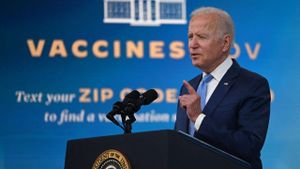With the 2024 election behind us, President-elect Donald Trump is stepping boldly back onto the political stage, and his new Cabinet choices are already raising eyebrows. Trump, who has always been known for his unconventional style, is filling key government positions with familiar names—some of whom are causing quite the stir among politicians and pundits alike.
Just last week, Trump initiated the process of assembling his Cabinet, which seems to be both ambitious and heavily influenced by loyalty. Tension is palpable as several of his nominees meet skepticism from within the Republican ranks. While many appointments align with traditional profiles—such as Sen. Marco Rubio's nomination as Secretary of State and House GOP Conference Chair Rep. Elise Stefanik for the U.N. ambassadorship—others are entangled with controversy.
Among the most contentious picks was former Rep. Matt Gaetz for the position of Attorney General. His nomination quickly spiraled as Gaetz withdrew, citing the desire to avoid a 'needlessly protracted Washington scuffle.' Many GOP senators were reportedly poised against him; Gaetz’s connections to allegations of serious misconduct likely played an influential role.
Noteworthy is Trump's apparent strategy to select loyalists who not only align with his agenda but also embody the disruptive influence he sought to leverage during his campaign. Geoffrey Skelley, senior elections analyst, pointed out, 'His nominations seem to suggest a desire to choose loyalists who'll do his bidding, pick some controversial outsiders, and test Republican senators' commitment to his program.'
Indeed, many nominees are casting shadows over the future of the Senate confirmation process. Anti-vaccine activist Robert F. Kennedy Jr. as Secretary of Health and Human Services and Pete Hegseth, a Fox News host, for Secretary of Defense are stirring significant debate. Skelley aptly noted, 'These are not picks usual for any Republican administration.' Kennedy's past inflammatory and fringe views—especially surrounding vaccines—pose not just political risk but also ethical dilemmas for Conservative senators who may have to vote on his confirmation.
It's indicative of Trump's governing style, one where shock and loyalty intertwine. Nathaniel Rakich, another senior elections analyst, mirrored this sentiment, 'These picks mostly have in common their loyalty to Trump, rather than conventional qualifications or ideological consistency.' This, some argue, unveils Trump's testing ground for the loyalty of the Republicans now holding power.
The numbers appear to support Trump—Republicans are expected to hold at least 52 Senate seats, giving the party leverage to confirm nominees. Yet, this majority will be seriously challenged, especially with more polarizing names on the table, including Kennedy and Hegseth who bring along heavy baggage. If successful, Trump could enforce nominations almost entirely free from room for dissent.
Vying for attention as well is Tulsi Gabbard, another controversial nomination meant to lead as Director of National Intelligence. Gabbard’s pushback against anti-Russian narrative, coupled with her past quality claims of combat experiences, does not sit well with critics. Her credibility has been questioned due to her past political stances, leaving Senate members unsure of her suitability for such sensitive work.
Trump’s penchant for unconventional choices raises many questions about the message he intends to send to both his loyal supporters and those within GOP ranks who may be uneasy about his more remarkable nominations. A closer examination of nominees also reveals shared characteristics—many are not only famous but also media personalities with limited experience outside promoting themselves. The transition team’s pattern suggests choosing nominees who are not merely unorthodox but also fervently loyal to Trump.
With this backdrop, the ramifications of Gaetz’s withdrawal cast longer shadows over potential nominees, pushing the concerns about the efficacy of Trump's forthcoming administration. Many analysts assert this leaves room for shifts within the party; members may rally closer against the more extreme picks as other less controversial names, like Linda McMahon for Education, emerge.
Trump’s Cabinet appointments echo through the halls of Congress as Republican Senators gear up for confirmation battles. Historically, the Senate has not often rejected nominations from its own party, but with recent history being set aside—the last rejection was Calvin Coolidge's nomination of Charles B. Warren back in 1925—this new trend of appointing controversial figures may sufficiently stress Longstanding norms.
While the nominees’ public reception varies greatly, the dynamics introduced will have major consequences on future votes. It appears Trump is firmly testing his party's limits through these appointments, encouraging both loyalty and compliance across various factions of the GOP. Only time will tell whether the strategy succeeds or leads to serious discord between Trump and Senate Republicans.
Looking forward, as the turbulent waves of political speculation and analysis churn, it will be interesting to watch how confirmation hearings transpire and what potential changes lie ahead for Trump’s second term. Amidst all this uncertainty, one thing remains clear: Trump's choices could redefine the Republican Party for years to come.



